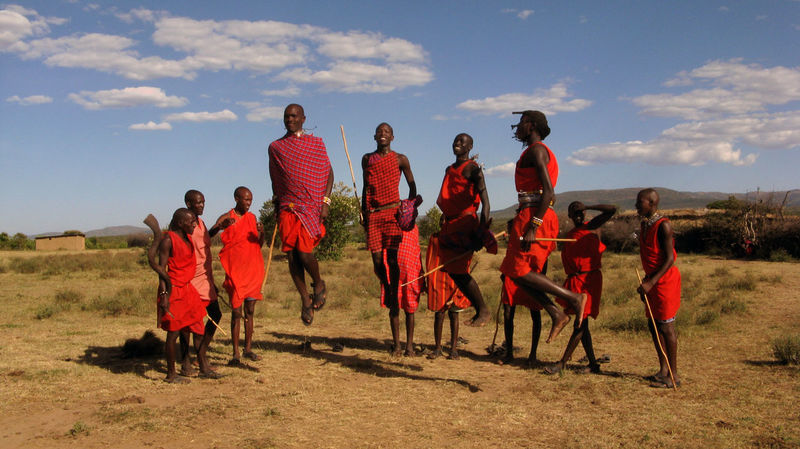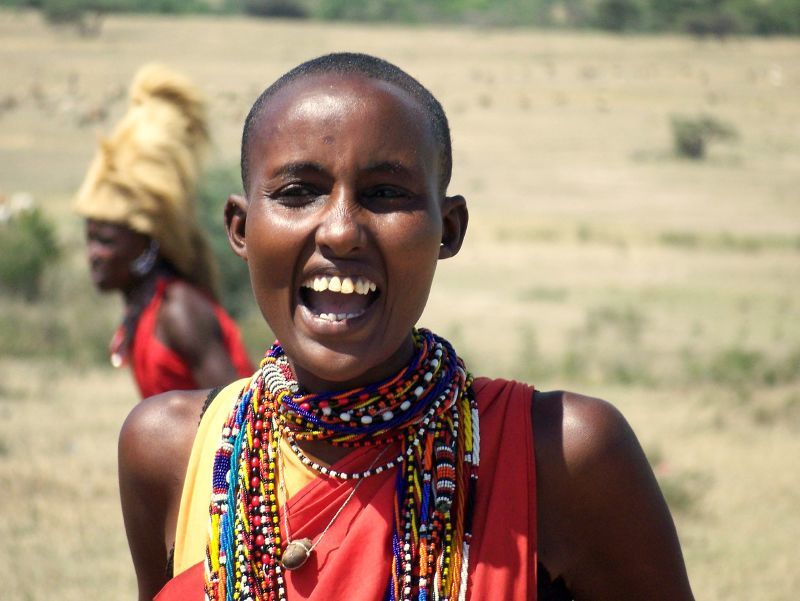Maasai Wedding
Maasai weddings involve intricate traditions where both men and women undergo circumcision ceremonies, with marriages often arranged and the bride receiving a dowry of livestock. The celebrations include symbolic blessings, colorful attire, beaded jewelry, and dancing, with men performing the high-jumping "adumu" dance to gain recognition and attract women.
Maasai Wedding
Maasai people live in southern Kenya and northern Tanzania. They speak Maa language. They live in semi-nomadic communities.
Traditionally a man has more than one wife. A situation where a woman has more than one husband is also present. It is important to mention that a woman becomes a wife of all local men who have the same age as the husband she has married. So these other guys can sleep with the woman. But, she has final decision if she wants to do it or not.
An age system within Maasai society is the key element of its structure. A man is circumcised aged between 15 and 20. This ceremony is called "emorata". After the ceremony a man becomes a warrior ("murran" or "moran"). A murran can not live with his father under same roof. Traditionally he is not ready to get married until he reaches the age of junior elders. But this tradition is becoming less important.

The key factor which will enable marriage is the fact that a man has the economic ability to live independently. The number of livestock he owns is very important. A groom must not be of the same age group as the bride's father.
The same as men young women are circumcised too. Arranged marriages are the most common. It is possible that in the morning of the wedding day a bride still does not know a man she is going to marry. Her dowry includes number of livestock (cows, sheeps, goats).
A bride cries as she is leaving her family to create a new one. A bride's father is spitting to symbolically bless his daughter. A bride goes to her wedding with her personal belongings.
A bride traditionally wears a special necklace made by her mother. It is made of beads and cowrie shells. Each part has the symbolic meaning. Red beads, for example symbolize power and unity.
Beads and shells are set in several rows. The number of rows signify the economic wealth. Strings attached to the main part of the necklace represent the number of livestock the bride is going to get for her dowry.
There is lot of singing and dancing by the local women. They are dressed in colourful clothes and have lot of jewelery. They celebrate the creation of a new family. They also encourage the bride to be active in her new home and overcome all the troubles that lay in her future life.

The men are usually wearing simple red or purple clothes. They are singing and dancing too. Some of them hold wooden poles. They perform a dance called "adumu" that includes lot of jumping.
They do it to become famous in the community, attract women etc. They are singing about their families, livestock and need to fight off the enemies who endanger their community.
References
Maasai people
http://en.wikipedia.org/wiki/Maasai_people
Coast Ernestina, Maasai Marriage: A comparative study of Kenya
and Tanzania
http://iussp2005.princeton.edu/papers/50391
Wedding Necklace, Maasai, East Africa
http://www.objectlessons.org/clothes-and-accessories-world/wedding-necklace-maasai-east-africa/s55/a320/
Symbolism of Massai jewelery
http://beadsofesiteti.com/symbolism-of-maasai-jewelry/
Image(s)
Maasai adumu dance - photo by Brutere
Maasai woman - photo by Javic (Flickr)